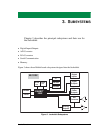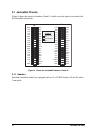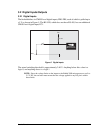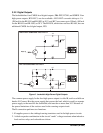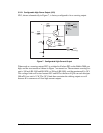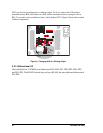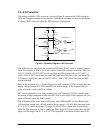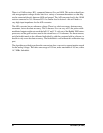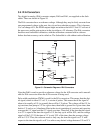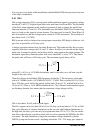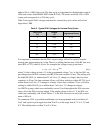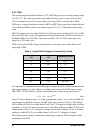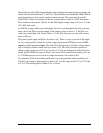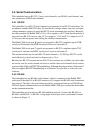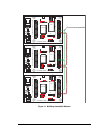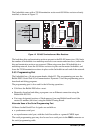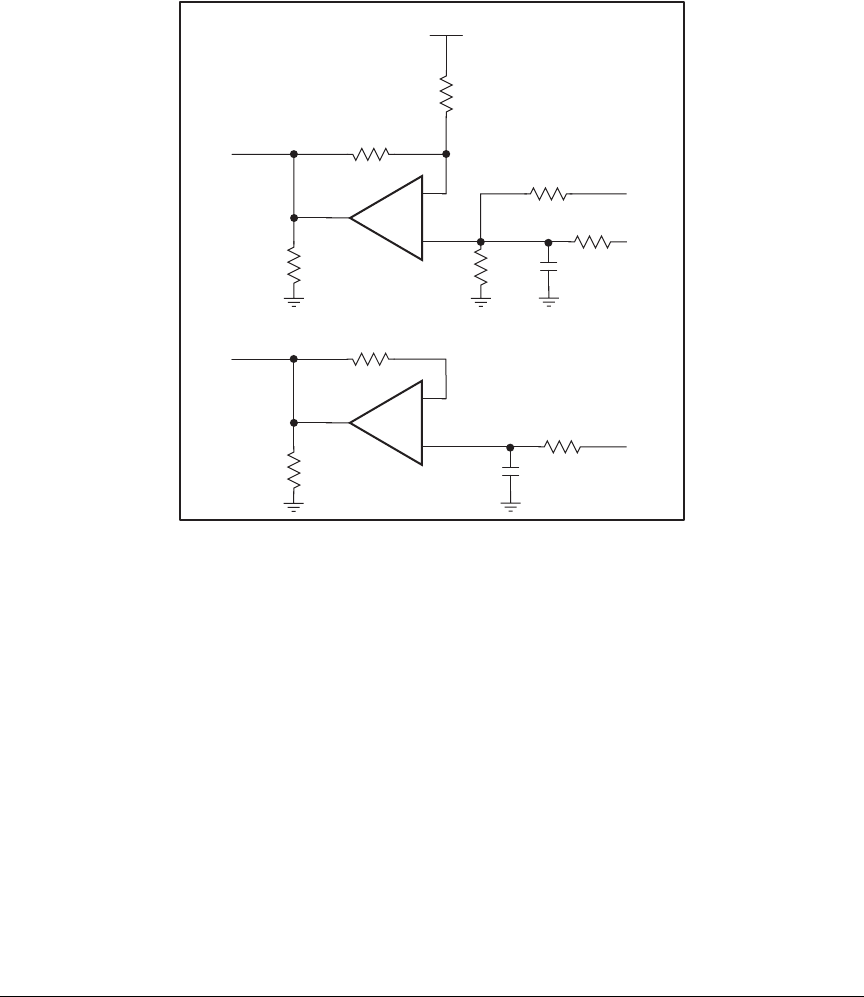
User’s Manual 23
3.4 D/A Converters
Two digital-to-analog (D/A) converter outputs, DA0 and DA1, are supplied on the Jack-
rabbit. These are shown in Figure 10.
The D/A converters have no reference voltage. Although they may be fairly accurate from
one programmed voltage to the next, they do not have absolute accuracy. This is because
Vcc can change ±5%, the PWM outputs might not achieve the full 0 V and 5 V rail out of
the processor, and the gain resistors in the circuit have a 1% tolerance. The D/A converters
therefore need individual calibration, with the calibration constants held in software
before absolute accuracy can be relied on. The Jackrabbit is sold without such calibration.
Figure 10. Schematic Diagram of D/A Converters
Note that DA0 is used to provide a reference voltage for the A/D converter and is unavail-
able for D/A conversion when the A/D converter is being used.
Pulse-width modulation (PWM) is used for the D/A conversion. This means that the digi-
tal signal, which is either 0 V or 5 V, is a train of pulses. This means that if the signal is
taken to be usually at 0 V (or ground), there will be 5 V pulses. The voltage will be 0 V for
a given time, then jump to 5 V for a given time, then back to ground for a given time, then
back to 5 V, and so on. A hardware filter in the circuit consisting of a resistor and capacitor
averages the 5 V signal and the 0 V signal over time. Therefore, if the time that the signal
is at 5 V is equal to the time the signal is 0 V, the duty cycle will be 50%, and the average
signal will be 2.5 V. If the time at 5 V is only 25% of the time, then the average voltage
will be 1.25 V. Thus, the software needs to only vary the time the signal is at 5 V with
respect to the time the signal is at 0 V to achieve any desired voltage between 0 V and 5 V.
+
Vcc
LM324
R29
1 MW
PD2
PD1
R22
10 kW
2
3
1
R26
82.5 kW
DA0
R20
1.1 kW
R27
255 kW
C20
100 nF
R21
110 kW
+
LM324
PD4
DA1
1.1 kW
100 nF
R24
100 kW
C22
R25
R28
100 kW
5
6
7



